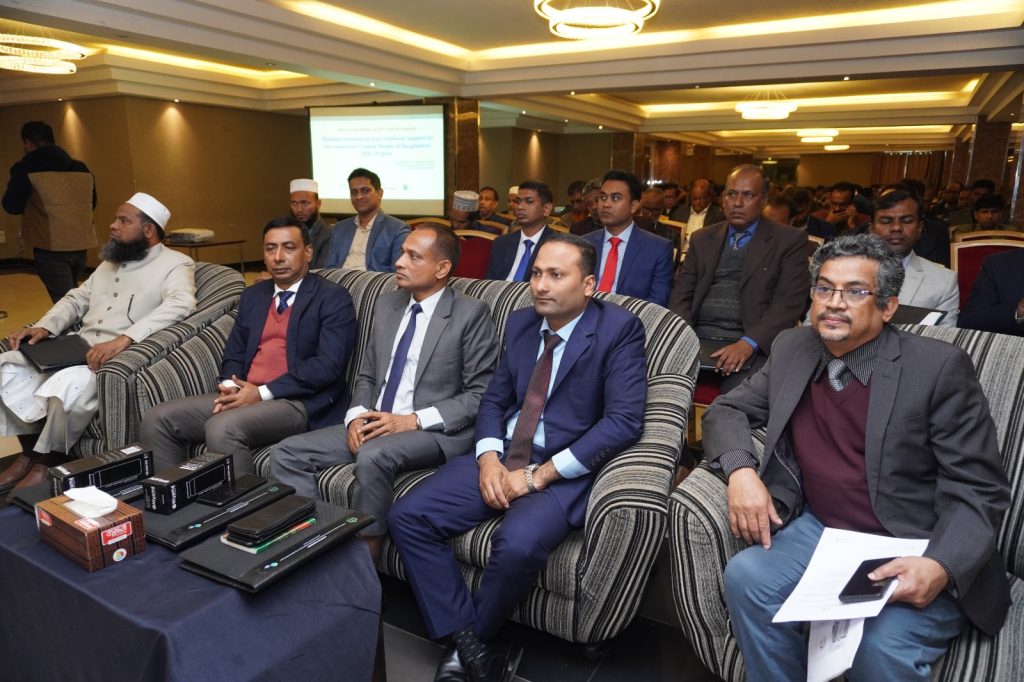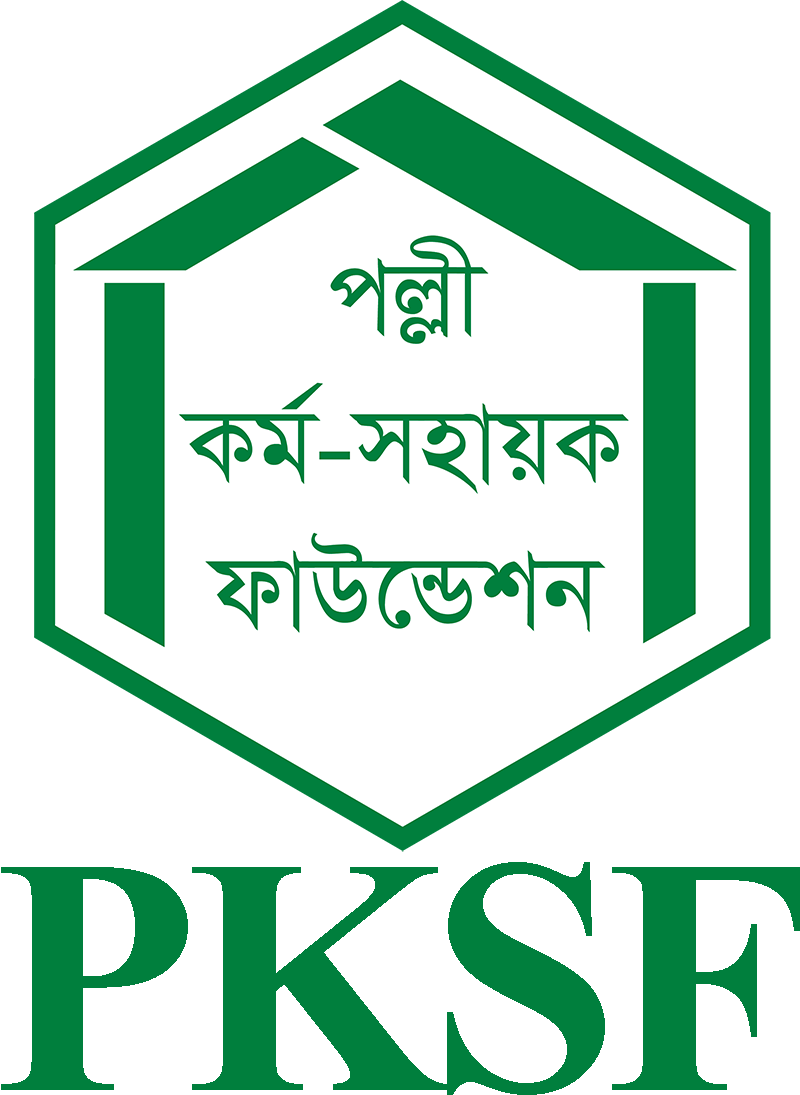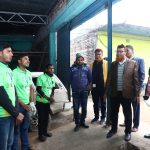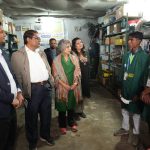Inception Workshop of RHL project held
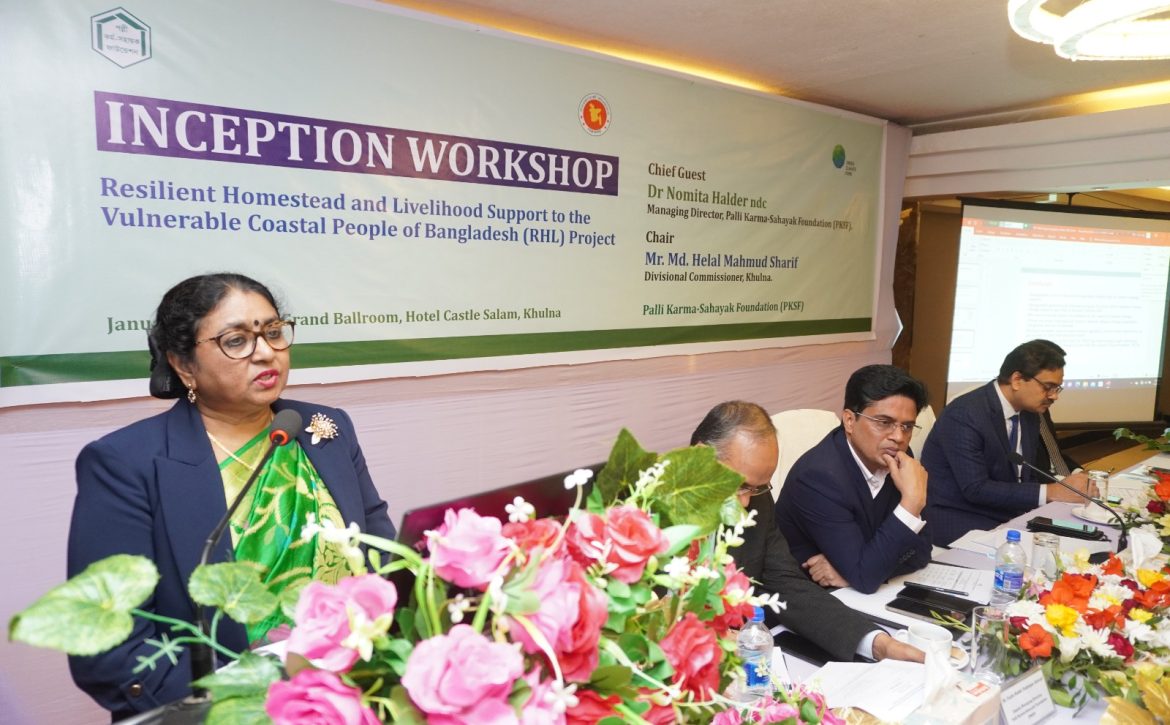
The Inception Workshop of the Resilient Homestead and Livelihood Support to the Vulnerable Coastal People of Bangladesh (RHL) project was held in Khulna on 29 January 2024, with the aim of providing suitable housing and livelihood support to the climate-vulnerable coastal people of Bangladesh.
Dr Nomita Halder ndc, Managing Director, PKSF, was present as the Chief Guest in the workshop. Md Helal Mahmud Sharif, Divisional Commissioner, Khulna, presided over the workshop. Representatives of various government departments, University teachers, representatives of international development agencies and representatives of PKSF Partner Organizations (POs) participated in the workshop.
PKSF is implementing the project in seven coastal districts (Cox’s Bazar, Bhola, Patuakhali, Barguna, Satkhira, Bagerhat and Khulna) with financial support from Green Climate Fund (GCF).
In the workshop, Dr Nomita Halder said Bangladesh is one of the most vulnerable countries when it comes to climate change. To prevent this danger, the government has already formulated various strategies and policies. Through this project, PKSF is playing a leading role in protecting the poor and ultra-poor communities who are most vulnerable to the effects of climate change. She expressed optimism that it is possible to achieve success in dealing with climate change risks through the active participation of all.
Md Helal Mahmud Sharif, in his speech, said that the government as well as private enterprises are contributing to combating the impact of climate change. For this, he expressed sincere thanks to the development agencies. He also expressed gratitude to PKSF for playing a leading role in this sector.
PKSF Deputy Managing Director Dr Fazle Rabbi Sadeque Ahmad said in his speech that the main objective of the project is to reduce the risk of life and property of the most vulnerable people living in the coastal areas of Bangladesh and to provide them with improved and sustainable alternative livelihoods to face the risks of climate change.
About 0.3 million poor people of costal area will be benefited through the project. Significant activities of the project include: construction/reconstruction/raising plinths in coastal climate resilient houses, establishment of crab hatcheries and expansion of crab farming technology, goat/sheep rearing, cultivation of salinity tolerant vegetables in yards, mangrove afforestation in yards and crab enclosures, etc.
